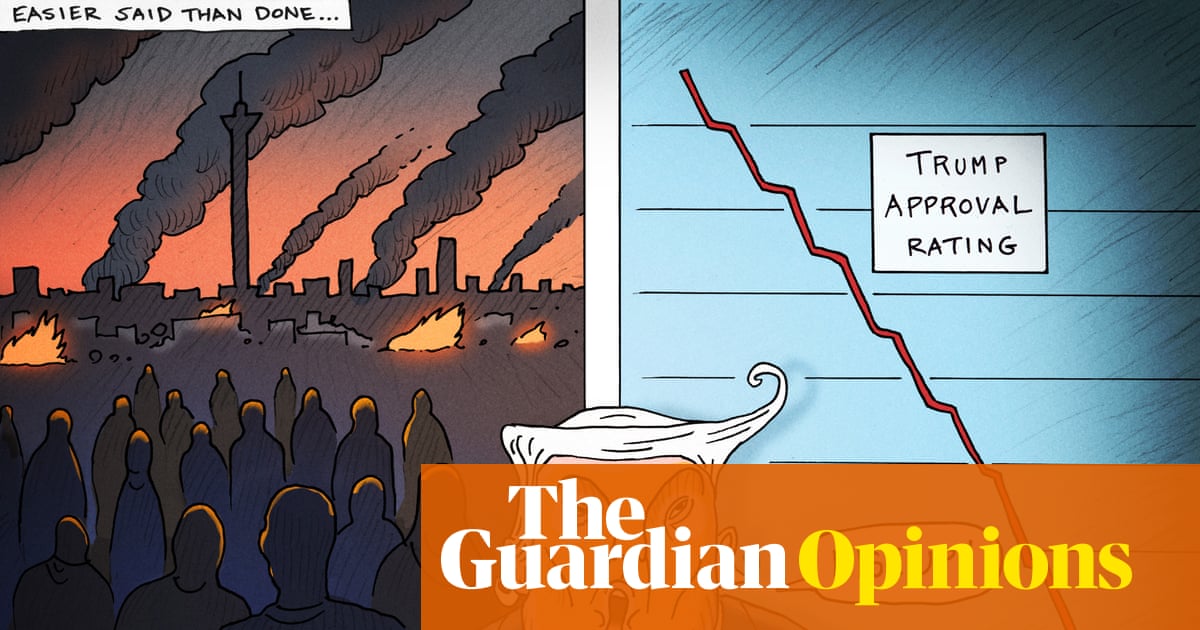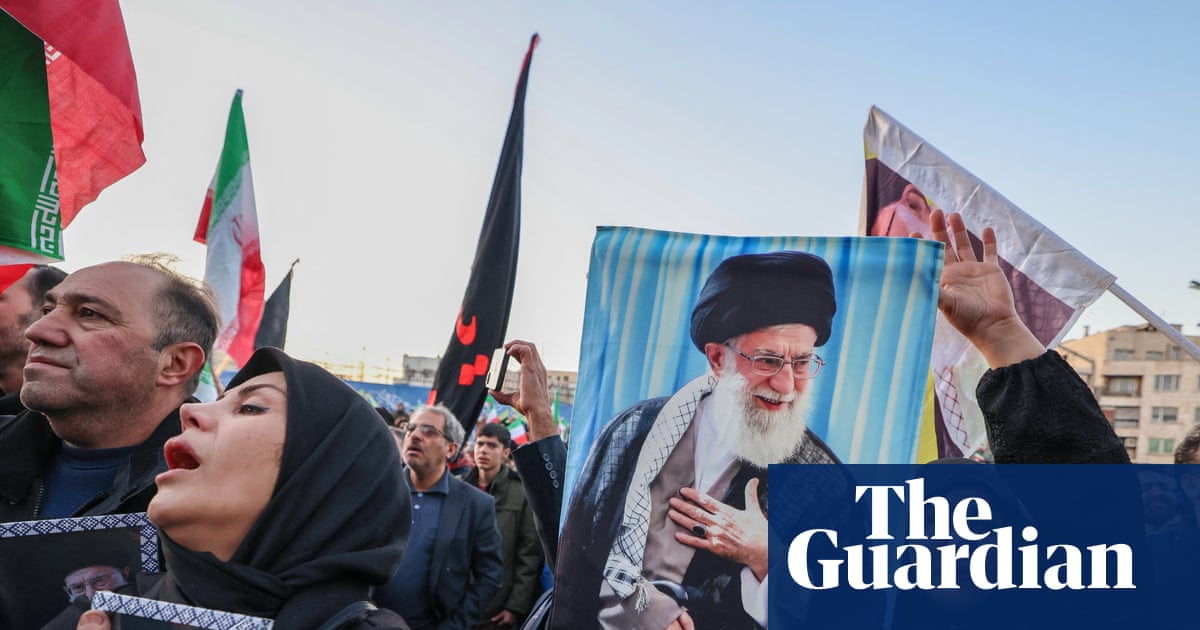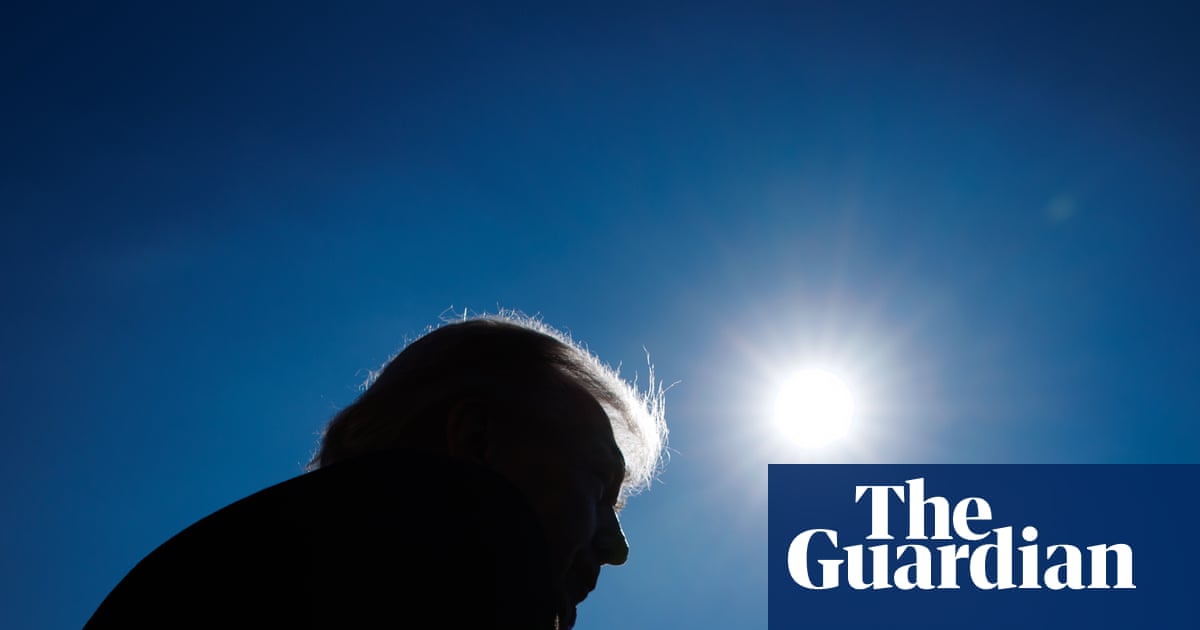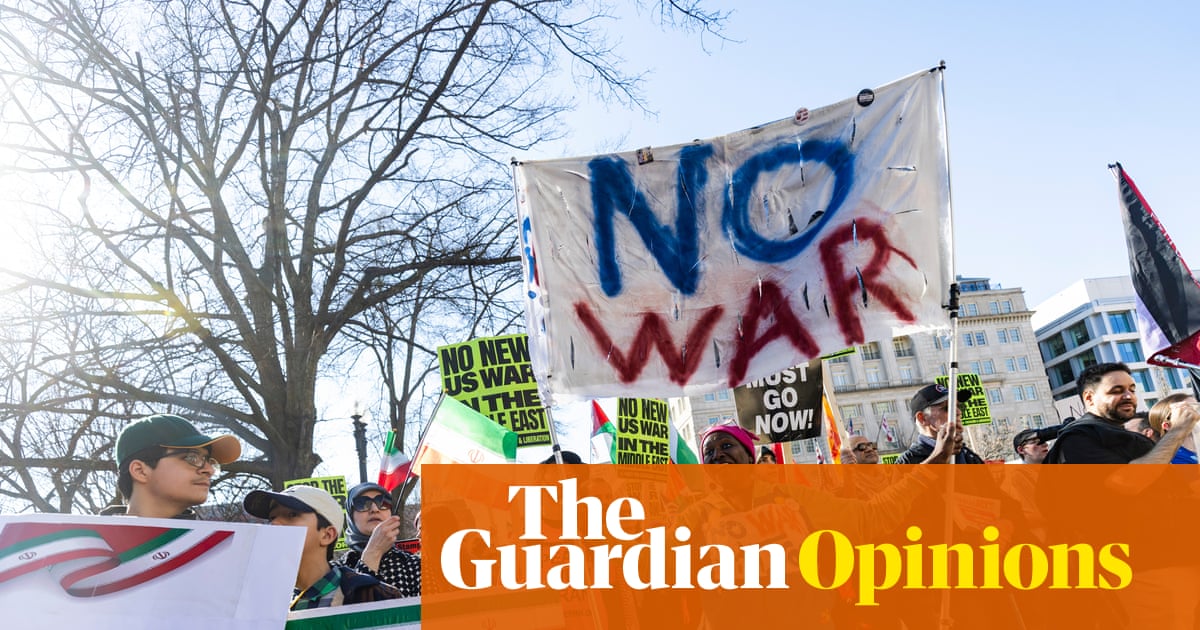Argentinians and tourists walking the streets of Buenos Aires are used to the large rubbish containers placed beneath the neoclassical and art nouveau buildings of the country’s capital and wealthiest city.
A more observant passerby, however, might notice a recent addition: a red warning placed by the city government reading “Danger, do not enter”, accompanied by a pictogram showing a person halfway inside.
“Unfortunately, it’s a safety measure,” said Evelyn Bierbrauer, who works with Manos Abiertas, an NGO supporting people experiencing homelessness. “Many people were taking refuge inside the containers – to look for food and even to spend the night there,” she added.
The number of people living on the streets of Buenos Aires has been breaking records: there were at least 4,522 in May, according to the latest municipal data – a figure some say is underestimated, but still a 38% increase compared with November 2023.
For Juan Nuñez, who works at the NGO Hogar de Cristo, the rise is driven by the country’s economic situation. “As the crisis deepens, poverty increases and so does homelessness,” he said.
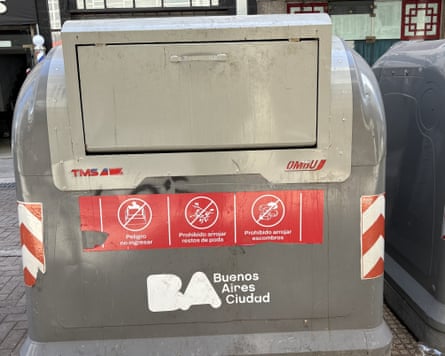
Since the far-right president, Javier Milei, took office in December 2023 and implemented his “chainsaw” austerity plan, inflation has fallen from more than 200% to about 30% annually – but more than 200,000 formal jobs have been lost, 18,000 businesses have closed, household debt has risen and buying power has collapsed.
Despite most socioeconomic indicators showing no improvement in living standards, the libertarian’s party, La Libertad Avanza (LLA), won the recent midterm elections by a wide margin – a result many saw as influenced by Donald Trump, who during the campaign threatened to withdraw a $40bn bailout if Milei lost.
LLA will form the largest bloc in the new congress, and organisations working to tackle poverty, as well as other groups hit particularly hard by the libertarian’s zero-deficit policies, fear that things could get even worse.
“Day by day, we’re seeing a large number of people ending up on the streets after losing their jobs and being unable to afford rent,” said Nuñez.
After Milei assumed office in late 2023, the poverty rate rose to more than 50% before falling back to just over 30%, although many analysts say much of the drop is due to a disputed change in the methodology used to calculate the figures.
“We’re preparing ourselves mentally to understand that this [increase in homelessness] will continue in the coming years, with even more economic tightening and measures that, sadly, always hit those with the least the hardest,” added Nuñez.
Among those hardest hit by Milei’s cuts so far, pensioners and people with disabilities are particularly worried about the next congress, which takes office on 10 December.
Even with only a modest number of seats, the president managed to push through deep cuts that led to a sharp fall in retirees’ real incomes, suspended benefits for people with disabilities and froze payments to providers of essential services such as therapy and transport.
It was precisely because the president’s party lacked even a third of the lower house that congress was able to override Milei’s veto of a bill granting higher pensions and an emergency bonus for people with disabilities.
Now, although he still falls short of a majority, Milei has formed the largest bloc when his party’s seats are combined with those of the centre-right PRO, which has already supported many of his policies.
“We don’t have enough to eat, to live, to think about holidays or free time,” said activist Laura Alcaide, 37, who has a visual impairment. “People with disabilities already struggle to find jobs because no one will hire us – and now many have lost their pensions because Milei took them away,” she said.
Hernán Letcher, director of the Centre for Argentine Political Economy, said the cuts affecting people with disabilities “stand out strikingly” because, in terms of their impact on deficit reduction, they are not particularly significant.
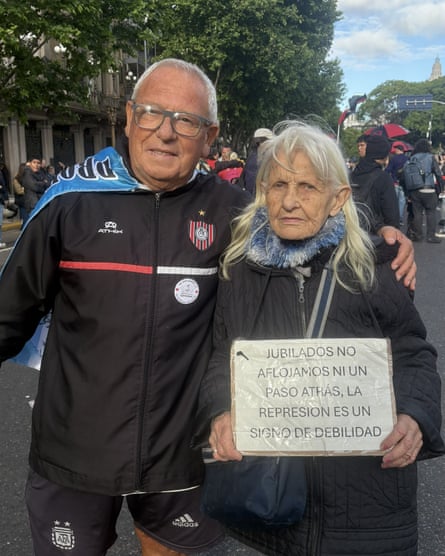
“I hypothesise that it has more to do with sending a message than with the money itself: that he is willing to do whatever it takes to maintain the fiscal surplus,” said Letcher.
There are about 6 million people with disabilities in the country, of whom only 1.2 million receive pensions.
Celeste Fernández, from the Civil Association for Equality and Justice NGO, estimates that about 140,000 of those pensions have been suspended. She said the cuts have affected Milei’s popularity, but not “as much as it could have – and the election results are the clearest proof of that”.
She argued that support for Milei was largely driven by opposition to Peronism, the populist political movement that has dominated the country’s politics for decades.
“There’s a strong anti-Peronist feeling, so people don’t want to go back to that [Peronist governments] … I also get the sense there’s something almost psychological about it – as if people feel that if this [Milei] doesn’t work, it’s like the last chance [for Argentina],” said Fernández.
Olga Beatriz González, 89, a retired pensioner, says she cannot understand how, despite so many cuts, Milei still managed to win last Sunday’s election. She said the president “is governing for the rich, not for the most vulnerable”.
The owner of a soup kitchen on the outskirts of Buenos Aires that provides free meals for people in need, González joins the protest pensioners hold every Wednesday against Milei’s cuts and said she is not afraid of the new, more conservative congress.
“Were the Abuelas de Plaza de Mayo ever afraid? No,” she said, referring to the women’s movement that has identified 140 children abducted or disappeared during the brutal 1976–83 military dictatorship.
“Just as they weren’t afraid, neither will we be. We’ll keep fighting. I come every Wednesday – I’m old, but I feel young – and I’ll keep coming to represent those who can’t be here,” said González.

.png) 3 months ago
95
3 months ago
95

